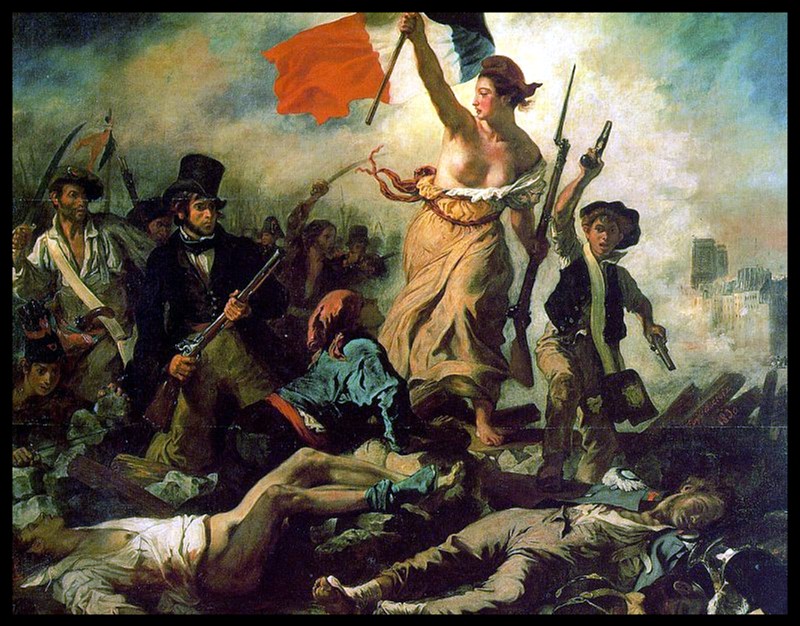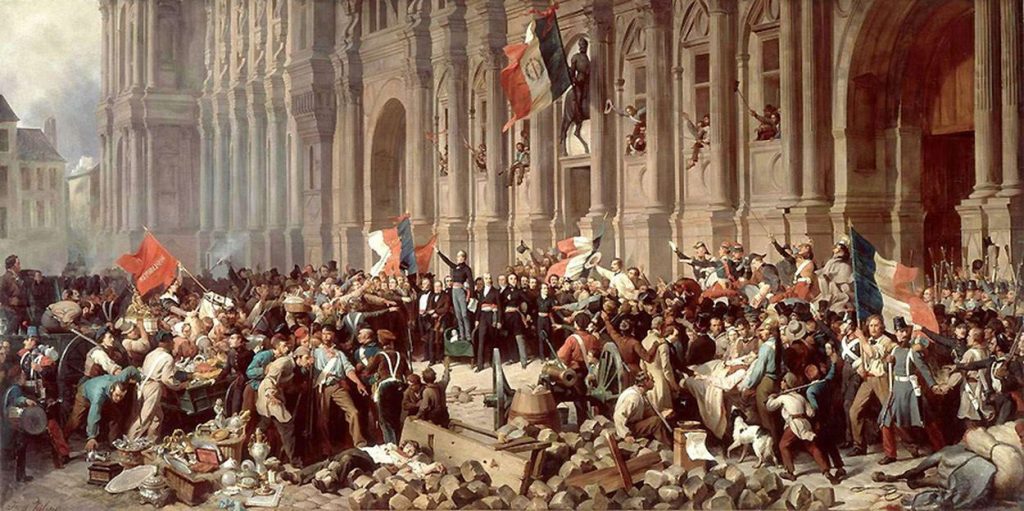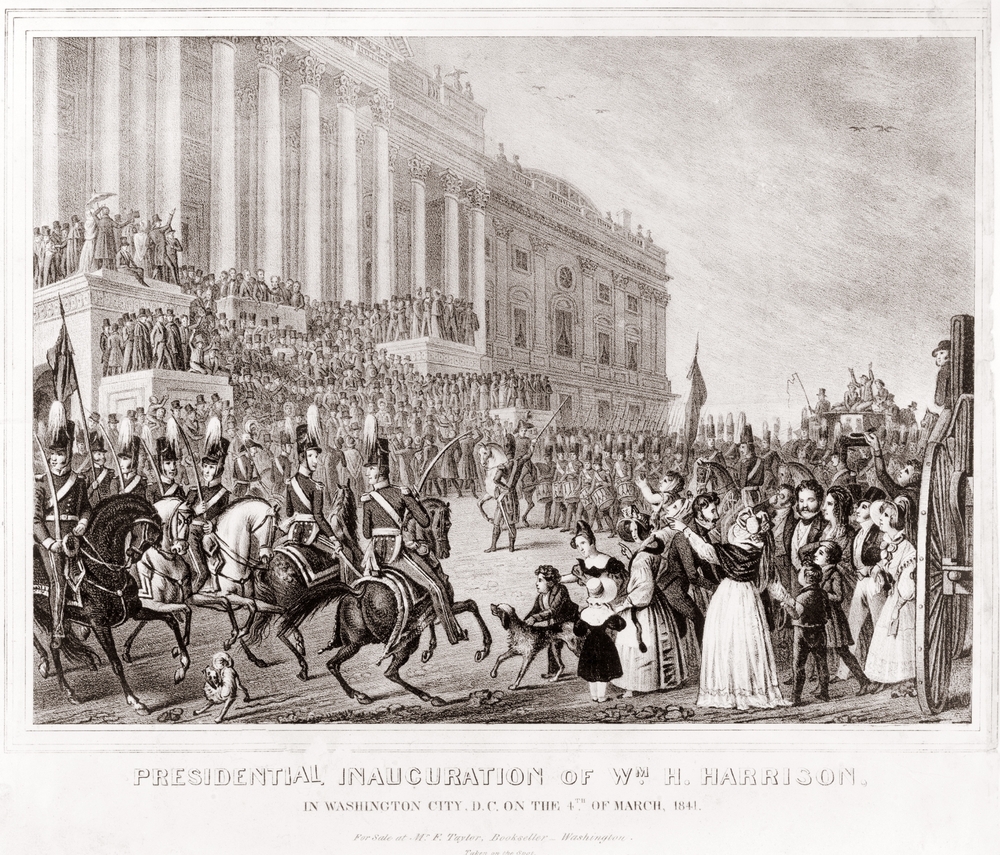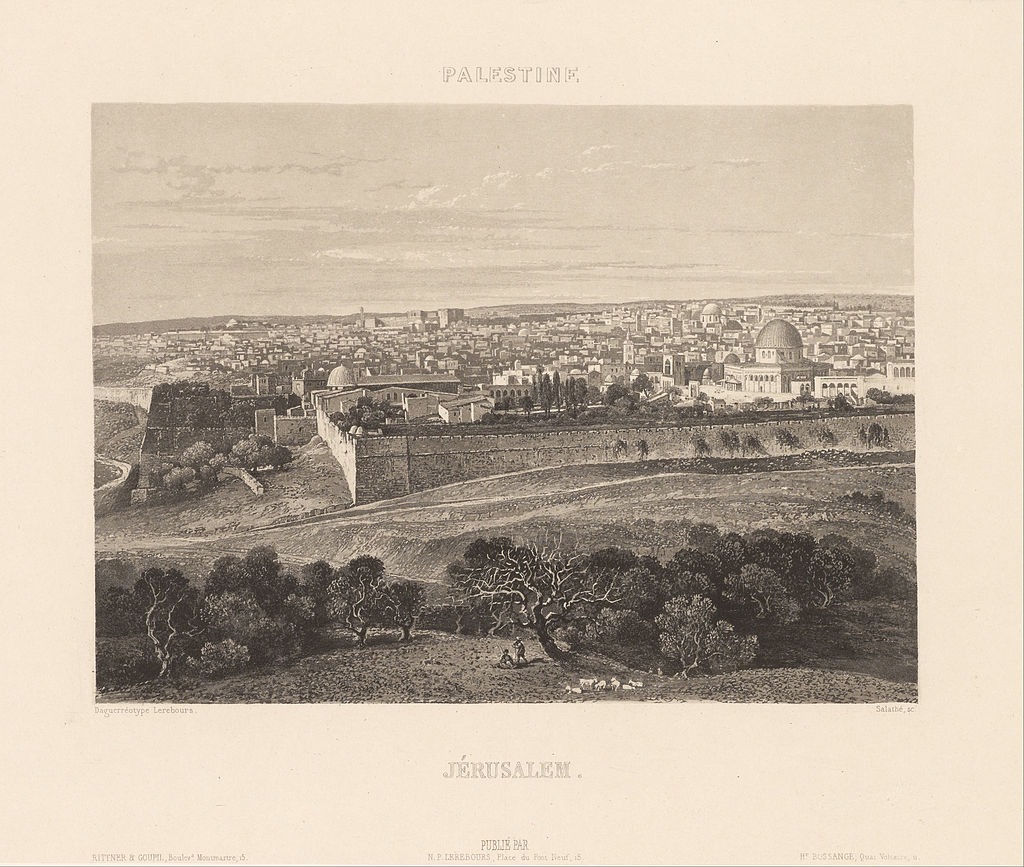
1830 AD to 1850 AD, Psalm 138: Renaissance of Jerusalem, Jewish city.
This site was first built in French (see www.147thgeneration.net). The English translation was mainly done using « google translation ». We have tried to correct the result of this translation to avoid interpretation errors. However, it is likely that there are unsatisfactory translations, do not hesitate to communicate them to us for correction.
(for that click on this paragraph)
Summary
This generation of the 1830s and 1840s.
According to our count, this generation is the 138th generation associated with Psalm 138. It is in this Psalm 138 that we therefore find an illustration of the facts of this generation.
This generation which is included between « Les trois glorieuses » (« three glorious », 1830) and the revolution of 1848 is “a generation of revolt”, in France but also in Europe.
This generation is also marked by the “industrial revolution” and the birth of capitalism.
« Israel is brought back to center stage » through the conflict between the great European powers and the Ottoman Empire.
The reign of Ibrahim Pasha is accompanied by a strong return of the Jews with the consequence of the “rebirth of Jerusalem”.
The tranquility of the Jews in the East is called into question through the « Damascus affair », an import of Western antisemitism in the East. This leads to a « renewed solidarity of the Jews of Europe towards those of the East ». This is associated with economic efforts that allow a “Renewal of the Jewish presence in Israel”.
This confirms the place of “Jerusalem, Jewish city”.
Talk
A generation of revolts
To this generation of the years 1830 and 1840, In France, Charles X succeeds his brother Louis XVII in 1824. His attempts to restore a royalty by divine right brings the reaction of the people in 1830 during the Three Glorious (July 27, 28 and 29, 1830). These result in the arrival on August 9 of Louis-Philippe I, nephew of Charles X who failing to establish the Republic, redefined the Monarchy.
If this generation begins with a mini revolution, it also ends with movements of revolts in 1848.
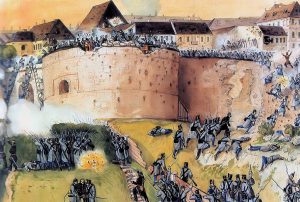
At that time, Italians, Czechs and Hungarians tried unsuccessfully to detach themselves from Austrian trusteeship. Agitations also take place in Germany but without changing the fate. The relative failure of these movements may be only temporary.
Industrial revolution and capitalism
In the margins of the movements of the nations, this generation is that of the hatching of capitalism pushed by the industrial revolution. The previous generation saw the creation of the working class, which saw the creation of the middle class and the rise of the bourgeoisie. This revolution also affects the United States of America that the conquest of the West will transform into a global heavyweight, both economic and political, of the next generations.
These different revolutions, including the industrial revolution, accelerate the emancipation movement of Jews in Europe:
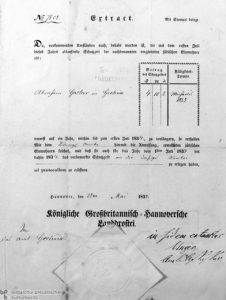
- The revolutions [1] of 1830 which broke out in different European countries did not reach Germany properly speaking; new ideas gain ground. The Liberal Party is raising its head and will play an increasingly important role. He will be the best auxiliary of the Jews in their struggle for emancipation. […]
- As liberal parties become more influential in the German states, the issue of improving the lot of Jews is back on the agenda. In the Grand Duchy of Hesse, a decree of October 1833 grants full citizenship to the Jews, without any restriction. In Württemberg and the Duchy of Baden, as well as in Bavaria, projects are under way.
Elsewhere in Germany, emancipation will come later. In Prussia, it is announced in 1848, then a return in the 1850s. It was not until 1871 that the emancipation is real and complete in German territory. It was around this same time (1867) that emancipation was obtained in the Austro-Hungarian Empire. Some progress still takes place in the present generation; Thus, in Hungary, Jews can, from 1839, become owners of buildings.
Israel brought back to the fore
As Europe moves towards the total emancipation of Jews, and before antisemitism reacts to counterbalance the effects, the land of Israel is brought back to the forefront of international political news for this generation. :
- Palestine [2] since the Bonaparte expedition was somewhat out of the international arena. She returned there, about 1830, with the aggravation of what is called at that time « the question of the East ». The hot spot is the Balkan Peninsula, where people seek to overcome Turkish domination to assert their national identity. Palestine is also projected into conflict because the opposing interests of the European powers and the Ottoman Empire are facing each other.
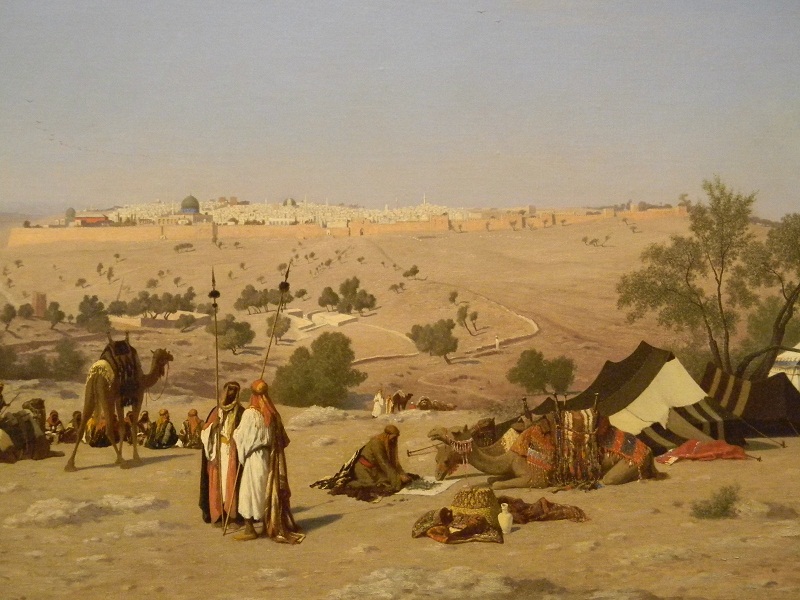
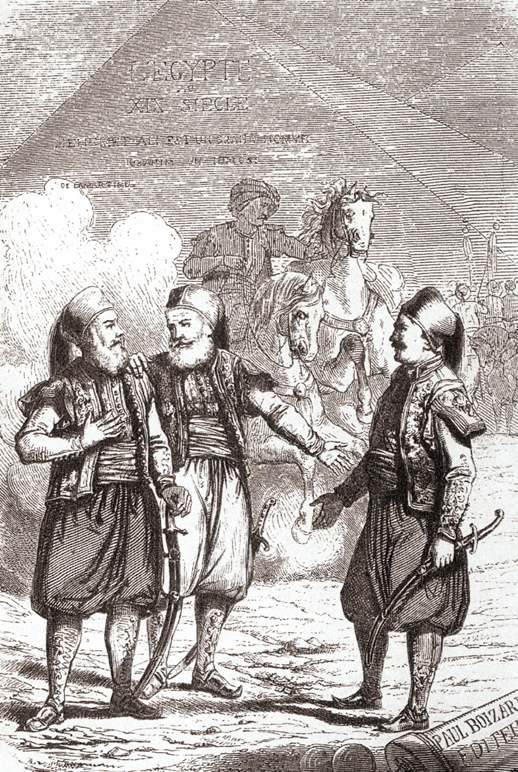
Born in Albania [3] in 1769, Mehemet Ali, a Muslim, made his first steps in Egypt and became the Pasha forcing the Turks to recognize him. In exchange, the Turks claim their help to fight the Greeks promising in exchange the possession of Egypt as hereditary as well as the domination over Syro-Palestine at least for the « duration of a life ».
The Greeks are beaten, but the involvement of the great powers, Russia and France and England force the Turks to recognize the independence of Greece which is concluded in 1829 by the Treaty of Adrianople. The Turks having « forgotten » their promises to Mehemet Ali, he invaded Syro-Palestine in December 1831. Jaffa falls, then Jerusalem where Ibrahim the son of Mehemet Ali between December 7, 1831. Acre is defeated and in ruins on May 26, 1832. Pushing to the Sea of Marmara, the Turks ask the help of the Russians which leads to the involvement in the conflict of English and French. The adventure of Mehemet Ali is stopped but he nevertheless retains the control of Syro-Palestine entrusted to his son Ibrahim who becomes the pasha. It will change the future of this region.
Renaissance of Jerusalem
The reign of Ibrahim Pasha opens a new era for Jews in the land of Israel:
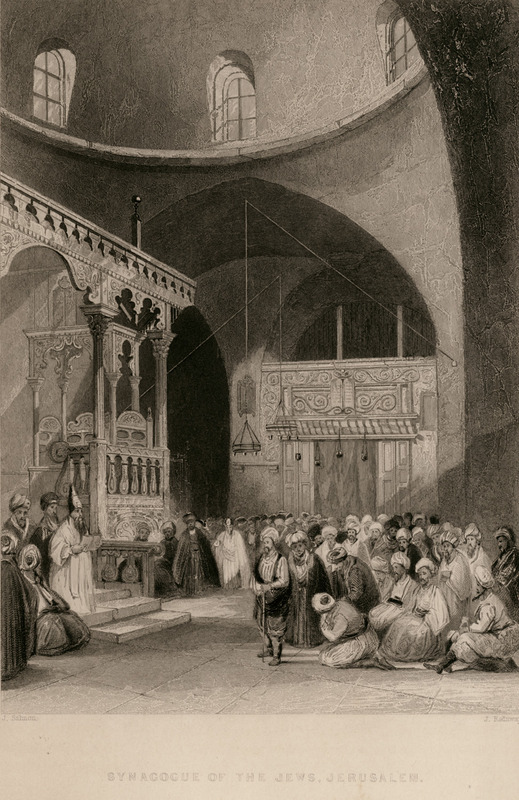
- Excluding [4] the exactions caused by the revolt of the peasants (Ibrahim had introduced new taxes on the crops, the peasants in their revolts were also taken to the Jews), the reign of Ibrahim Pasha on Erets Israel brings great improvements. He managed to increase security on the roads by fighting Bedouin raids. We owe him the first attempts to sedentarize them in order to divert them from looting. It removes the ransom of travelers, and encourages agriculture, as well as crafts and commerce.
- In general, the economic development of the country is beneficial for all inhabitants including Jews.
- Opening the doors to foreigners, it allows them to found religious and educational establishments. This approach, totally revolutionary for the time in a society extremely closed to modernity, is symbolized by the opening, in Jerusalem, of the first European consulate.
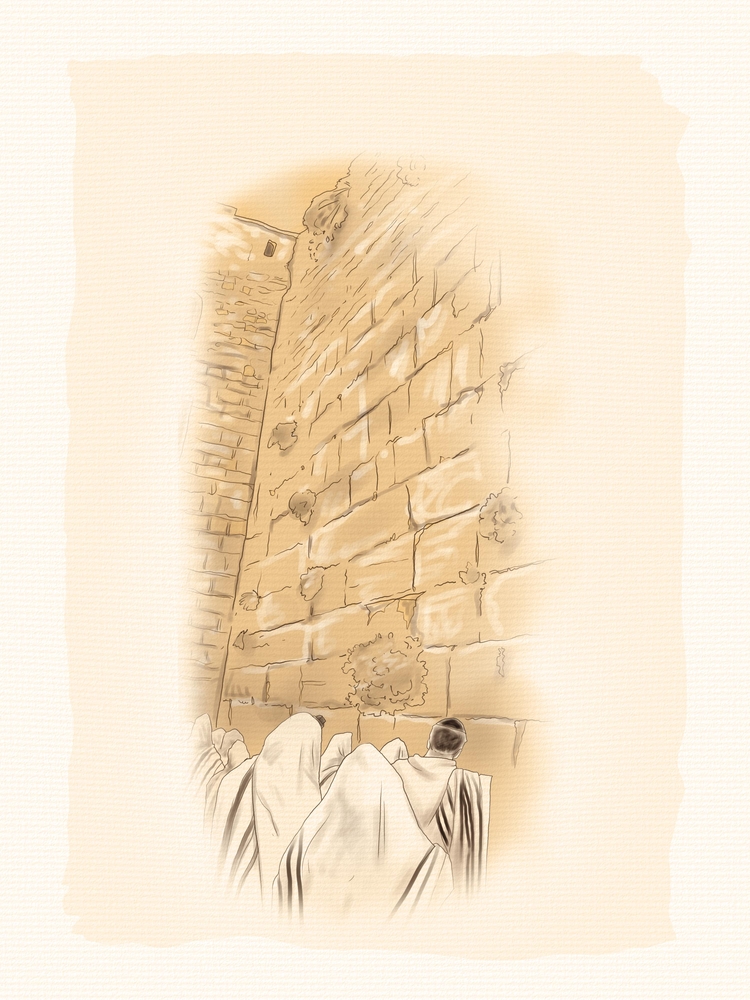
- Not only does Ibrahim Pasha authorize Christian religious orders to develop in Jerusalem, but his tolerance extends even to the Jews. The restoration of the old synagogues is allowed, contrary to the traditional principles of Islam. New construction plans are accepted. Jews can go to pray at Kotel, the Western Wall, without the special permits that had to be renewed each year.
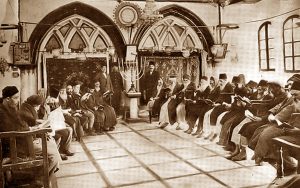
- The Sephardic Jews [5] were able to rebuild the Ben Zakkai Synagogue, one of the four synagogues of Jerusalem’s Jewish Quarter. The Ashkenazim returned to Hourva, destroyed in 1720.
The return of the Jews to Jerusalem, which presages the final return to the promised land and the open access to the temple through the Kotel is the subject of the beginning of the psalm of this generation:

- Of David. I shall thank You with all my heart; before the princes I shall sing Your praises.
- I shall prostrate myself toward Your holy Temple, and I shall give thanks to Your name for Your kindness and for Your truth, for You magnified Your word over all Your names.
The Damascus affair
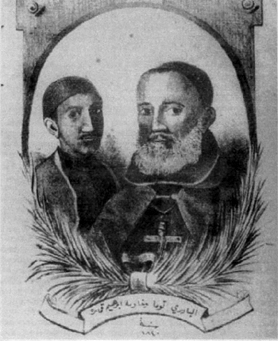
To this generation came in the Islamic sphere a case that would have had its place in Europe: the case of Damascus in 1840. In fact, it is Europeans who trigger it exporting to land of Islam some of their anti-Semitic traditions :
- On February 5, 1840 [6], a French national, Father Thomas, superior of the convent of the Franciscans of Damascus, mysteriously disappears with his servant. Soon the rumor spreads in the city that it is a « ritual murder ». The French consul in Damascus, Ratti-Menton, is influenced by these rumors and, with the consent of the Pasha governor of Damascus, takes the case in hand.
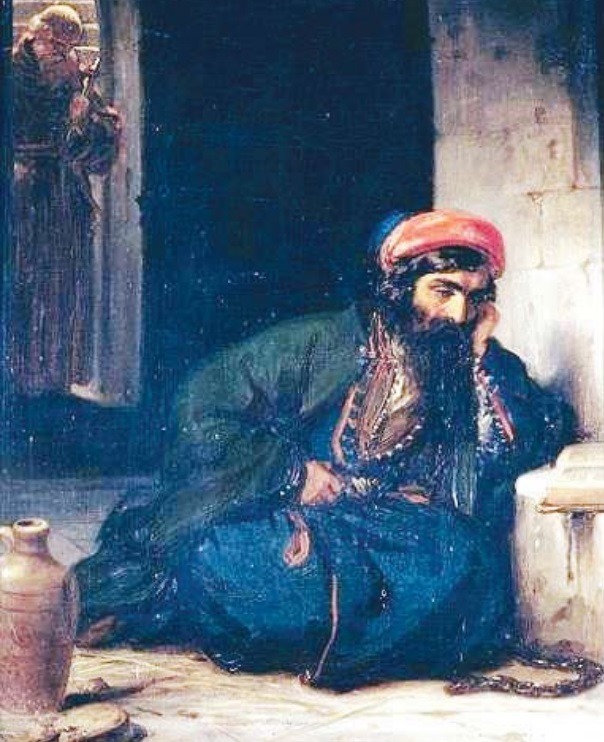
- He begins by making several arrests in the Jewish quarter: a poor barber, under the blows and the tortures ends up « confess » what one wants to force it to say – that it is indeed a « ritual-murder » . He randomly names seven of the city’s best-known Jewish notables who, he says, are involved in crime. They are immediately tortured, two of them die under blows.
- Not having obtained the desired confession, Ratti-Menton seizes sixty young children. They are locked up without food in front of their mothers, screaming. Further arrests take place. The excitement is at its height, there is even fear of a general massacre of the Jews of Damascus.
Solidarity of the Jews of Europe towards those of the East
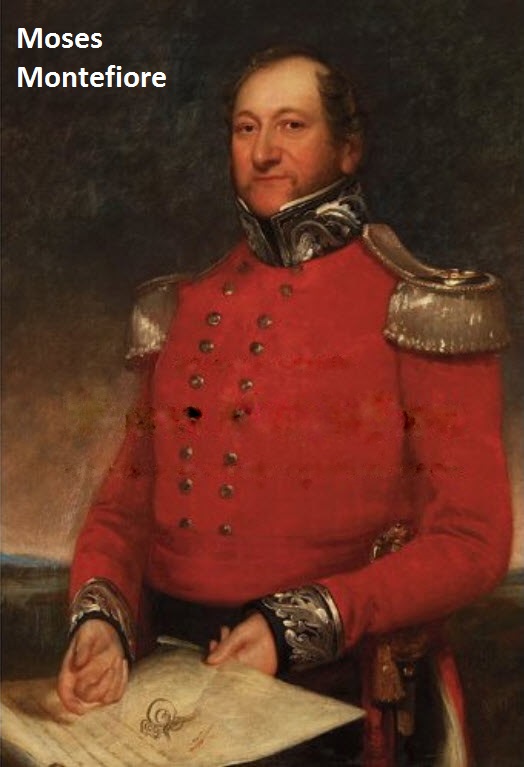
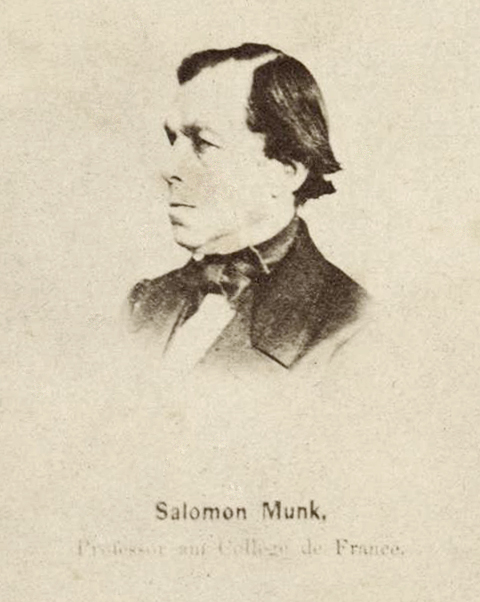
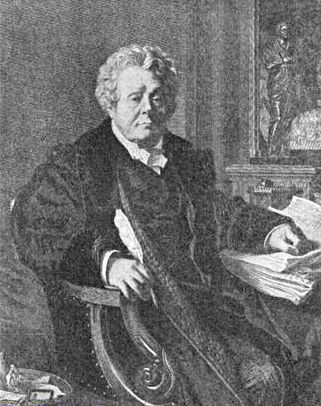
This situation provokes a reaction of the Jewish communities of Europe with the support of most representatives of the European states:
- Reported [7] in Europe by a press attentive to the question of the East, the case makes a great noise, especially in emancipated Jewish communities, because it marks the transfer to the East charges that were thought to be over in the West. Powerfully supported by the Rothschild family and a Jewish public that urges them to act as such for the defense of their fellow Jews, Sir Moses Montefiore, the former sheriff of London and, from France, the oriental scholar Salomon Munk and the lawyer Adolphe Cremieux went to Alexandria in the summer of 1840 to meet Muhammad Ali.
- Under the pressure of the European consuls who, with the exception of the French representative, support the initiative, the Viceroy of Egypt recognizes the innocence of the accused and makes them relax. The Damascus affair really brought East Judaism closer to that of the West, claiming for the former the political emancipation which the latter began to benefit. For the first time, the manipulation of international solidarity comes out of synagogues to fit into the political game.
It is this concerted action of the Jews of Europe to the aid of the Jews of the East that is evoked in the rest of the psalm of this generation:

- On the day that I called and You answered me; You made me great, [putting] strength into my soul.
This courage allowed not only to obtain the liberation of the Jews of Damascus unjustly questioned but allowed recognition on the part of the « all the kings of the earth« , because in addition to the support of all the consuls (the French consul did not follow initially for purely political reasons) and Prince Metternich in Vienna, other « kings » join in this success, such as the Queen of England:
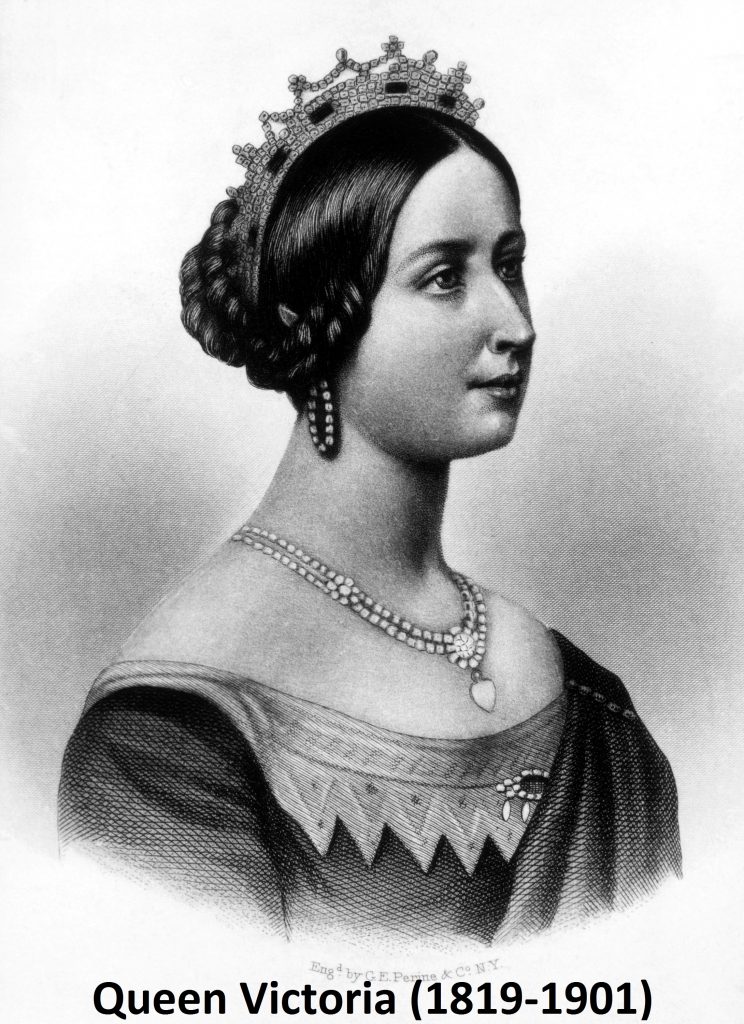
- Sir Moses Montefiore’s [8] return trip (after being successful in Damascus then Constantinople) lasted four months. […] Celebrated for the success of his mission in many cities, he finishes, after several stops by arriving in London. He was first received by Lord Palmerston, and by Queen Victoria on March 24, 1841. Montefiore recounts: « I received a cordial welcome and basked the hand of the Sovereign ».
Previously, not satisfied with the liberation of the Jews of Damascus without having been really out of cause, he had met the Sultan in Constantinople and obtained on November 7, 1840, the following « firmano »:
- « Firmano » presented [9] to the First Judge of Constantinople, at the head of which His Imperial Majesty wrote with his own hand the following words: « That be executed what is prescribed in this Firmano. «
- An old prejudice prevailed against the Jews. The ignorant believed that the Jews used to sacrifice a human being, to use his blood in their Passover feasts.
- As a result of such an opinion, the Jews of Damascus and Rhodes (subjects of our empire), were persecuted by other nations. The slanders that were pronounced against the Jews and the vexations to which they were subjected finally arrived at our imperial throne. […]
- Besides the fact that the religious books of the Jews have been examined by learned men well versed in their theological literature, the result of such examinations is that it was found that among the Jews strictly prohibited the use of human blood and even that of animals. From which it emerges that the accusations against them and against their religion are pure calumny.
- For this reason, and for our love for our subjects, we can not allow the Jewish nation (whose innocence about the crime in question is obvious) to be humiliated and tormented over accusations that have not been made. the smallest foundation of truth, but want that, in accordance with the Hatti Sherif proclaimed to Gulhani, the Hebrew nation has the same benefits and enjoy the same privileges accorded to the many other nations subject to our authority.
- The Jewish nation will have to be protected and defended. To improve this, we have given the most positive orders that the Jewish nation living in every place of our empire be perfectly protected, as well as all the other subjects of the sublime Porte, and that no one should torment them in any way. (except for a just cause) nor in the free exercise of their religion, nor with regard to their safeguarding and tranquility.
The pleading based on the mosaic law (the words of your mouth) allowed the Jewish emissaries (Montefiore, Cremieux) to change the fate of the Jews in the East with an approval of the crowned heads to complete the evolution of the Jews from the West to the emancipation.
This is what the following psalm of this generation expresses:

- O Lord, all the kings of the earth will acknowledge You, for they heard the words of Your mouth.
- And they will sing of the ways of the Lord, for great is the glory of the Lord.
This homage of nations to the Lord is also materialized by the new opening of consulates in Jerusalem:
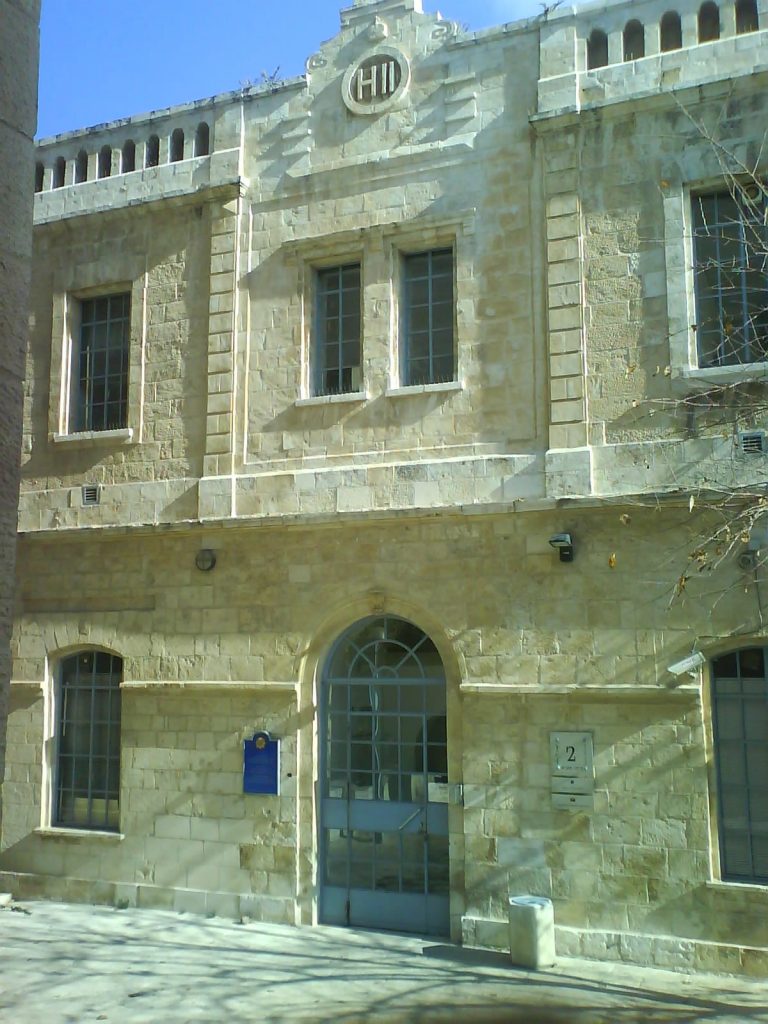
- For a long time [10] For a long time there had been European consulates in Damascus and Beirut, cities of international trade. But Jerusalem, shut in its walls and its economic poverty seemed doomed to a very closed religious conservatism. The opening of a prestigious British consulate is one of the most important events of the last years of Egyptian rule. […] It was one of the visible signs of modernization during the Egyptian rule. After 1841 and the return of Palestine under the sultan (of the Ottoman Empire), the country does not return exactly to the state where it was ten years earlier. Modernization continues to slowly make its way. The appearance of new European consulates in Jerusalem is proof of this.
- As early as 1843, France, Russia and Prussia each opened a consulate in the Holy City. It was in 1849, the turn of Austria and, in 1854, that of Spain.
This installation in Jerusalem (on the heights) is the link with the rest of the psalm:

- For the Lord is high …
The Damascus affair is also raising awareness within European Jewry that the misery of many Jews, particularly in the East, is taking concrete action to remedy this.
European Jews on the road to emancipation are convinced that the atrocities against Jews in Europe are a thing of the past. Hoping sincerely that Europe, heir to the spirit of the Enlightenment could only be a place of happy cohabitation between men of divergent beliefs, they want to share their progress with their Eastern co-religionists who are still subject to statutes humiliating. The Damascus affair thus triggers the solidarity of the Jews of the West towards those of the East.
Renewal of the Jewish presence in Israel
Moses Montefiore, already on his trip to Palestine in 1837, had noted the extreme poverty of the Jews in the Holy Land, particularly in the region of Safed devastated by an earthquake early in the same year:

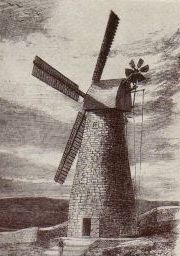
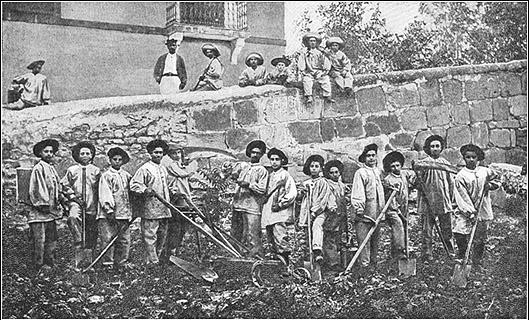
« I (it is Montefiore who expresses himself) believe [11] that the poverty of Jews of Safed goes far beyond all that one can imagine in England or continental Europe. He distributes money ceaselessly from nine in the morning to six in the evening, and makes a point of including non-Jews in his cast. […] He is perfectly aware that these alms are a palliative that solves no problem of substance. The Jews to whom he speaks would all want to be able to earn their bread:
- They seem to think that agriculture is the most desirable way to get them out of their current situation of decadence […] There is goodwill and with little help from well-chosen people in Europe, we could quickly restore health and abundance, with the help of Heaven.
As a result [12] of this visit to this agricultural development, Montefiore is already aiming to request land transfers for the establishment of one hundred to two hundred villages, well before the initialization of Zionism. Even if this project does not succeed, it lays the foundation for the renewal of the Jewish presence in the land of Israel.
The will of Montefiore associated with other great Jewish philanthropists is in the long term and allows a progressive elimination of the misery of the Jews in the Holy Land and in other countries of the East. One of the results is the creation of the Israelite alliance that will soon work in this direction.
This solidarity will also play for the Jews of the Maghreb especially in Algeria become French in 1830 and for Tunisia in 1857 following the execution for blasphemy of the Jew Batto Sfez. As for the agricultural projects of Montefiore, they will eventually take shape in the land of Israel giving little independence to the Jews of the Holy Land.
This « North-South » solidarity within Judaism is evoked in the following of the psalm of this generation:

- (For the Lord is high) but He sees the lowly, and He chastises the haughty from afar.
This solidarity was the result of the reaction to the exactions carried out against the Jews under the instigation of the French Consul in Damascus. Even though there were Jewish victims, this affair allowed for the retreat of those who had set up the business (« my enemies« ), the revival of Jerusalem and the survival of the Jews in the land of Israel. The assistance of the Jews of Europe allows the Jews of Palestine to survive and settle really on their lands and thus to be able to welcome new candidates for the return to Zion.
This is what the following psalm of this generation expresses:

- If I walk in the midst of distress, You revive me; against the wrath of my enemies, You stretch forth Your hand and Your right hand saves me.
In 1840 [13],the Jewish population of Jerusalem exceeds the Moslem population and the Christian population, since, according to the averages established from different censuses it is estimated that out of a total of 13000 inhabitants, 5000 are Jewish, 4650 are Muslims and 3350 are Christians, remember that the Muslim presence in Jerusalem was mainly due to the Christian and Jewish pilgrimages that ensured their sustenance either directly by the taxes collected or indirectly by the generated activity. To this generation the entire population of Jerusalem is concentrated in the walls, it will be necessary to wait for the next generation for Montefiore to create the first district outside the walls, this first Jewish quarter will be followed by other initiatives as well on the part of the Christians and the Muslims. So, before the birth of Zionism there is no significant presence, Muslim or not, in what today the Palestinians and the world denominate East Jerusalem.
The same year [14], Palestine has 70,000 inhabitants including 10,000 Jews. The world’s population [15] is then about 1.2 billion inhabitants, about 6 times less than the current world population (2013). So if we project, the current population of Palestine, if Zionism had not taken place, should include about 400,000 inhabitants of all religions, four times (five times if we restrict ourselves to the Muslim population) less than the current Israeli Arab population, without including the so-called Palestinian population of the West Bank, Gaza and the « diaspora ».
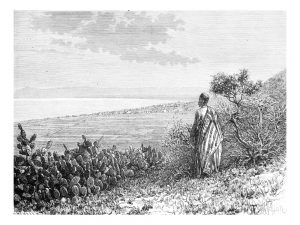
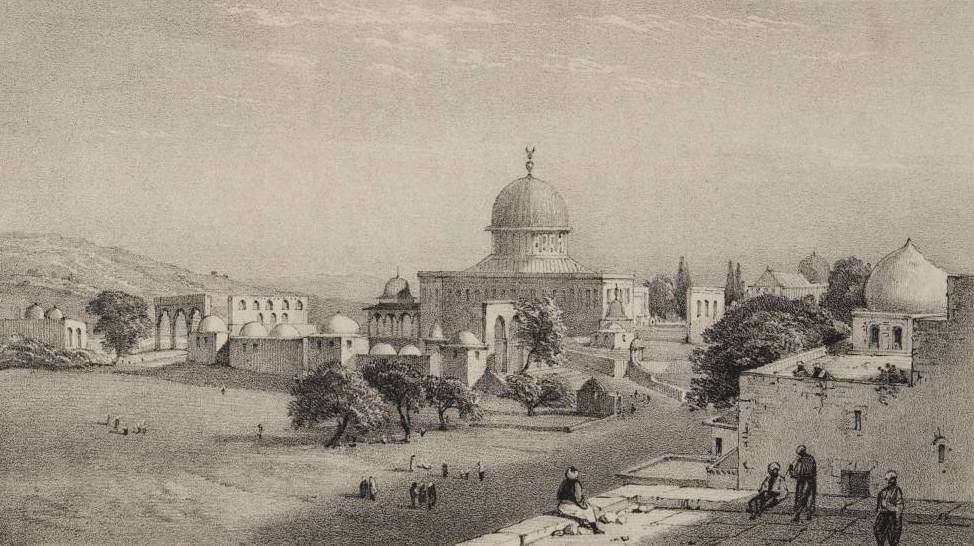
The country is almost desert, which in a few years will allow nascent Zionism to advocate a return to Zion. All the more easily as the return to Zion, in spite of the difficult conditions and the humiliations, is already well initialized to this generation pursuing a movement undertaken for many generations now.
The 19th century industrial and intellectual revolution accelerates the development of the population in the Holy Land and Jerusalem.
Jerusalem, Jewish city
Following the Damascus affair [16], the Jewish press is developing both in the East and in the West, favoring the importation and circulation of new ideas. Boats bring new energies to the land of Israel, such as Samuel Salant, who will contribute greatly to the development of Jerusalem in the following decades:
- Samuel [17] Salant (1816-1909), coming from Poland-Russia, went directly to Jerusalem in 1841. Transiting through Turkey, he arrived in Eretz Israel on one of the very first steamboats set in use. His strong personality quickly makes him the most respected rabbi in the Ashkenazi community. Having studied at the famous yeshiva of Volozhin, animated by a disciple of the Vilna Gaon, he is also listened to and recognized by the Hasidim. He is the founder of many traditional educational institutions and also participates in the creation of Bikor Holim Hospital. He looks to the future and encourages Jews to develop new neighborhoods outside the walls. During his long life, he witnessed the remarkable development of the Ashkenazi community of Jerusalem, of which he is officially recognized chief rabbi. From 500 to his arrival in 1841, the Ashkenazi rose to 30,000 at his death, nearly fifty years later.
We are therefore at a crucial generation, the fidelity of the Jews to their land and to Jerusalem since the beginning of exile is rewarded from the present generation who consecrates Jerusalem as a Jewish city. The bullying that the Jews have suffered for generations since they reactivated the return to Zion has not undermined their determination and to this generation, Jerusalem is already a Jewish city.
Miraculously, despite the two millennia of exile, the land of Israel is almost desert and has vomited all the other peoples who have tried to populate it and this land is ready again to welcome the people God has appointed to populate it: the Jewish people.
The price paid by the Jewish people for its fidelity has been high and it will continue to pay dearly for it in future generations, but the movement back to Zion is engaged and is inexorable. The curses suffered by the Jewish people since the beginning of the night and the return to their land are consistent with Moses’ predictions.
The movement announced for this generation is also consistent with what Moses defines in his prediction as the initialization of the « term of exile », unfortunately if it is initiated, exile globally is not completed and before it is coming to an end, new generations of exile will succeed each other with their lot of curse and for the Jewish people unprecedented misfortunes.
This is why the psalmist concludes his psalm by praying to God to fulfill his promises because the night of the Jewish people is not over:

- May the Lord agree with me; O Lord, may Your kindness be eternal. Do not let go of the works of Your hands.

[1] Renée Neher-Bernheim: « Jewish History of the Revolution to the State of Israel ». (French: « Histoire juive de la Révolution à l’État d’Israël ». (p. 162) )
[2] Renée Neher-Bernheim: « Jewish Life in the Holy Land, 1517-1918 ». (French: «La vie juive en Terre sainte, 1517-1918 ». (p. 167) )
[3] From: Renée Neher-Bernheim: « Jewish Life in the Holy Land, 1517-1918 ». (French: «La vie juive en Terre sainte, 1517-1918 ». (p. 167 à 170) )
[4] Renée Neher-Bernheim: « Jewish Life in the Holy Land, 1517-1918 ». (French: «La vie juive en Terre sainte, 1517-1918 ». (p. 172) )
[5] Simon Sebag Montefiore: « Jerusalem: Biography ». (French: « Jérusalem : Biographie ». (p. 398) )
[6] Renée Neher-Bernheim: « Jewish History of the Revolution to the State of Israel ». (French: « Histoire juive de la Révolution à l’État d’Israël ». (p. 373-374) )
[7] (Sous la direction de) Antoine Germa, Benjamin Lellouch et Evelyne Patlagean : « Les Juifs dans l’histoire ». Chapitre de Frédéric Abécassis et Jean François Faü : « Les Juifs dans le monde musulman, 1840-1945 ». (p.553).
[8] Riccardo Calimani: « The Jewish Wandering ». (French: « L’Errance juive ». (p.468) ).
[9] Riccardo Calimani: « The Jewish Wandering ». (French: « L’Errance juive ». (p.467, 468) ).
[10] Renée Neher-Bernheim: « Jewish life in the Holy Land ». (French: « La vie juive en Terre sainte ». (pp. 177 et 190) )
[11] Renée Neher-Bernheim: « Jewish life in the Holy Land ». (French: « La vie juive en Terre sainte, 1517-1918 ». (p. 180) )
[12] See Renée Neher-Bernheim: « Jewish life in the Holy Land ». (French: « La vie juive en Terre sainte, 1517-1918 ». (p. 181) )
[13] According to Renée Neher-Bernheim: « Jerusalem, three millennia of history ». (French: « Jérusalem, trois millénaires d’histoire ». (pp 142, 143) ).
[14] According to Renée Neher-Bernheim: « Jewish History of the Revolution to the State of Israel ». There are other estimates of the population in Palestine with big variations in numbers. However, whatever the estimate, the land of Palestine and Jerusalem in particular, were very sparsely populated in the mid-nineteenth century when Jewish immigration intensified.
(French: « Histoire juive de la Révolution à l’État d’Israël ». (p. 361) ).
[15] According to :http://en.wikipedia.org/wiki/World_population_estimates
[16] (directed by) Antoine Germa, Benjamin Lellouch and Evelyne Patlagean: « The Jews in History ». Chapter of Frédéric Abécassis and Jean François Faü: « Jews in the Muslim World, 1840-1945 ». (French: « Les Juifs dans l’histoire ». Chapitre: « Les Juifs dans le monde musulman, 1840-1945 ». (p.554) )
[17] Renée Neher-Bernheim: « Jewish History of the Revolution to the State of Israel ». Chapter: « Towards a better life ». (French: « Histoire juive de la Révolution à l’État d’Israël ». Chapitre : « Vers un mieux-être ». (p. 364) )

